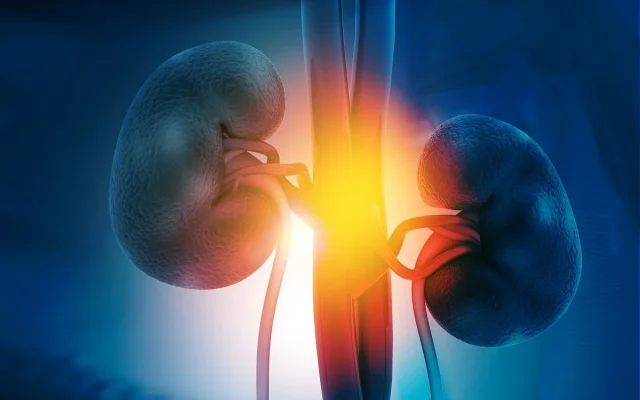Fifteen of 20 HLA-matched living donor recipients achieved the primary end point of being immunosuppression-free for more than two years
By Elana Gotkine HealthDay Reporter
TUESDAY, July 15, 2025 (HealthDay News) — Kidney transplant recipients receiving the investigational cellular product MDR-101 achieved functional immune tolerance for more than two years, according to a study published in the July issue of the American Journal of Transplantation.
Dixon B. Kaufman, M.D., Ph.D., from the University of Wisconsin School of Medicine and Public Health in Madison, and colleagues conducted a phase 3 randomized trial to examine MDR-101 for producing immune tolerance versus standard of care in kidney transplant recipients. Adult recipients of kidneys from 2-haplotype human leukocyte antigen-matched living siblings were randomly allocated to treatment or control (20 and 10, respectively). Treatment recipients received a nonmyeloablative conditioning protocol with rabbit-antithymocyte globulin and 10 fractions of low-dose total lymphoid irradiation. On day 11, MDR-101 was infused. Steroids and mycophenolate were withdrawn by day 10 and day 39, respectively. Tacrolimus was continued until day 180, and if donor hematopoietic mixed chimerism was ≥5 percent, it was tapered to withdrawal one year posttransplant. Per institutional standard of care, controls received immunosuppression.
The researchers found that none of the 20 recipients of MDR-101 developed graft-versus-host disease. Approximately one year after transplant, 95 percent successfully discontinued all immunosuppression. Seventy-five percent reached the primary study end point of immunosuppression-free for more than two years. Four resumed immunosuppression: one each with recurrent immunoglobulin A nephropathy, recurrent immunoglobulin A nephropathy and rejection, rejection, and borderline biopsy changes.
“In the scheme of things, this research is right at the very top,” coauthor Mark D. Stegall, from the Mayo Clinic in Rochester, Minnesota, said in a statement. “It’s been a goal — to be able to safely get transplant recipients off immunosuppression — for longer than I’ve been doing this.”
Copyright © 2025 HealthDay. All rights reserved.



















